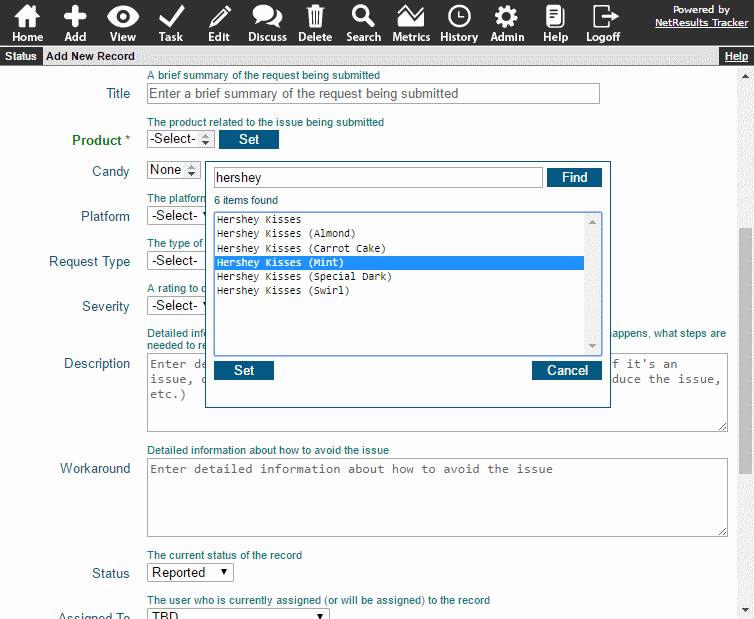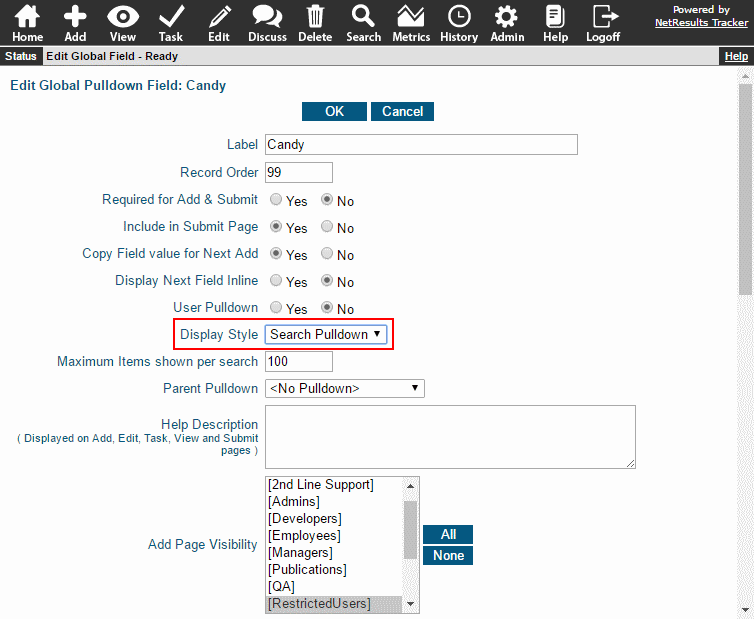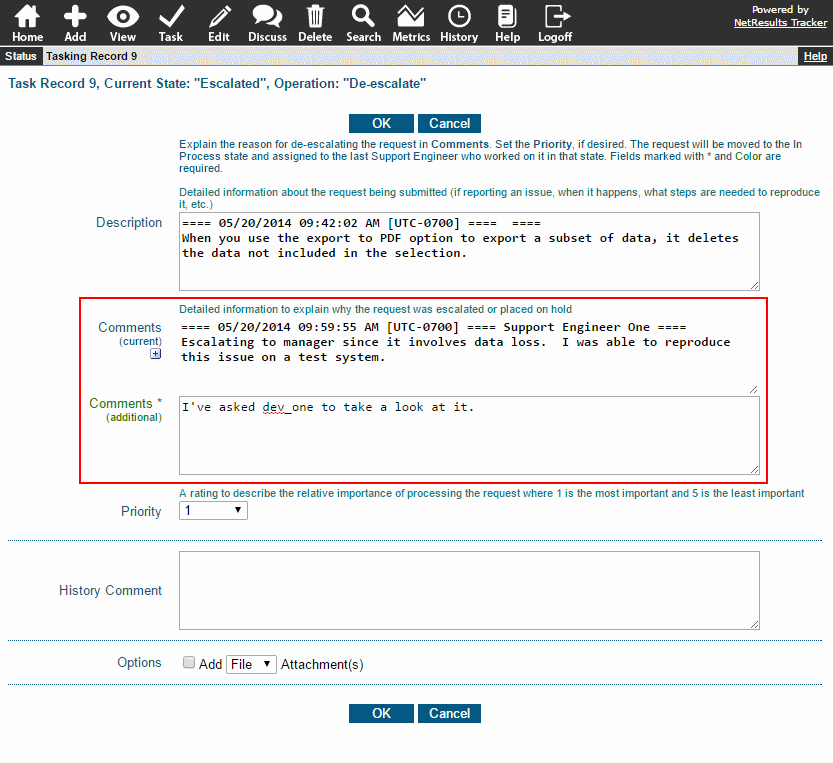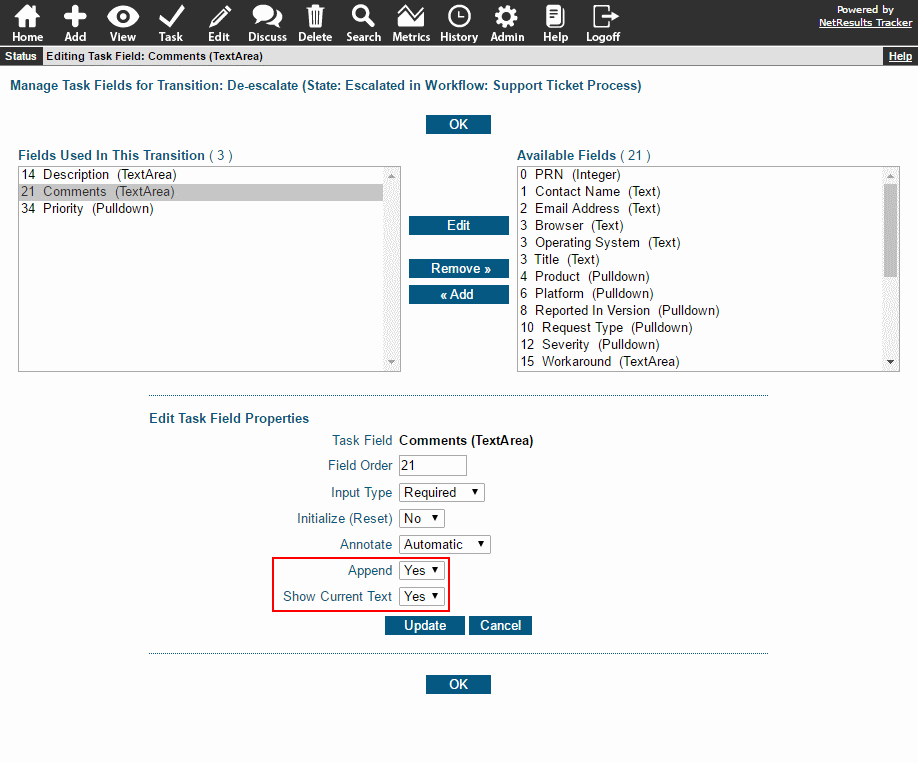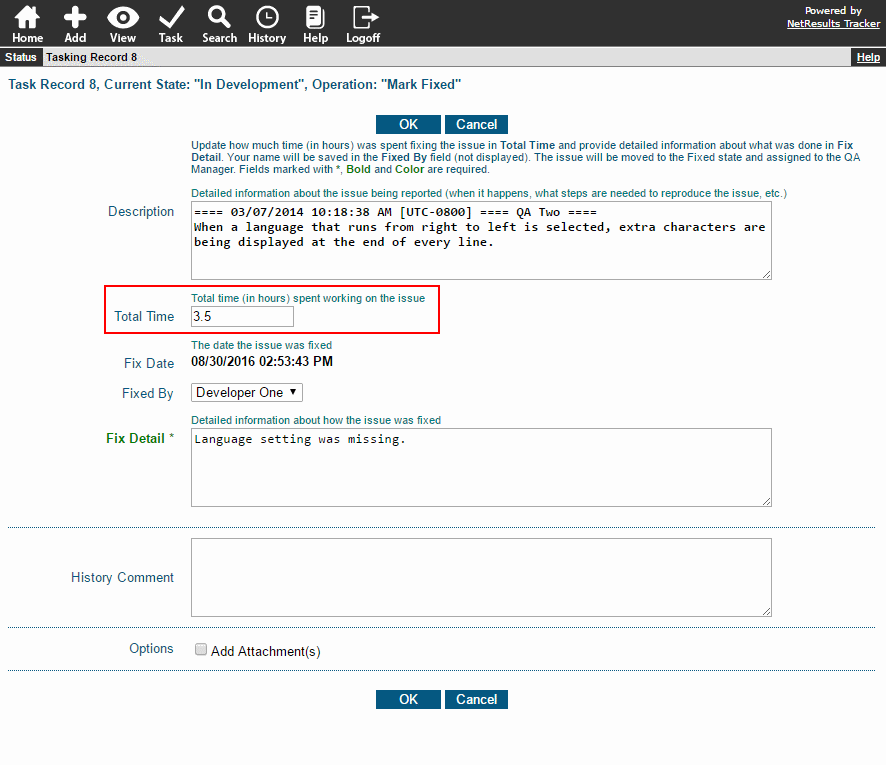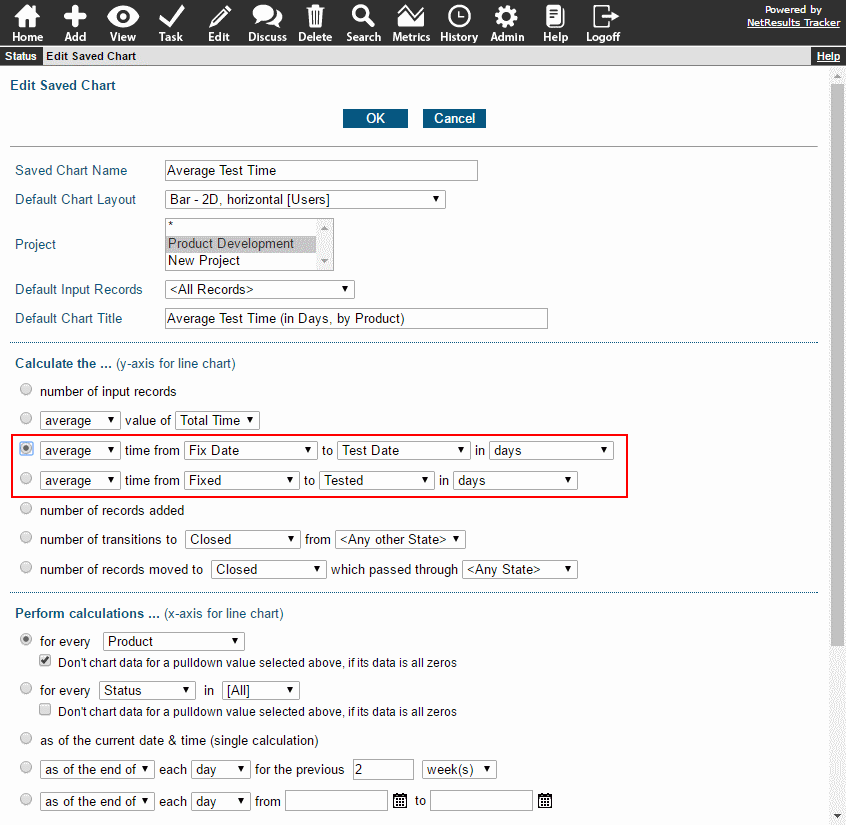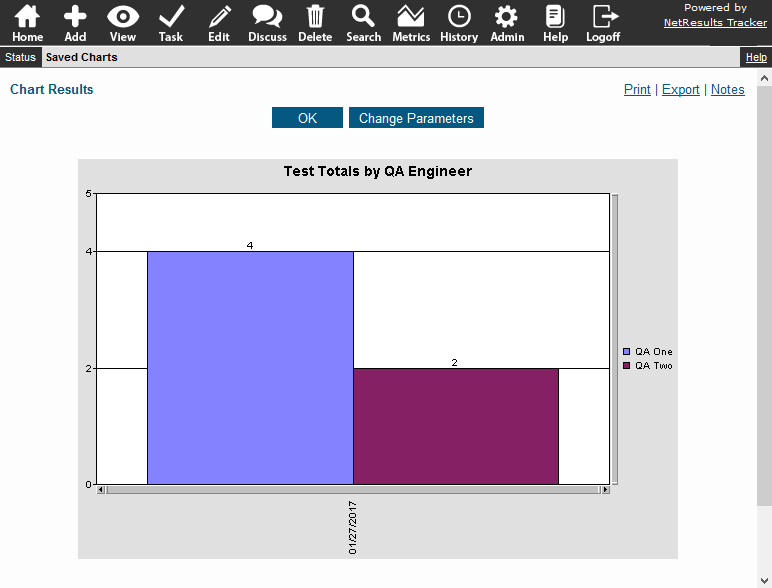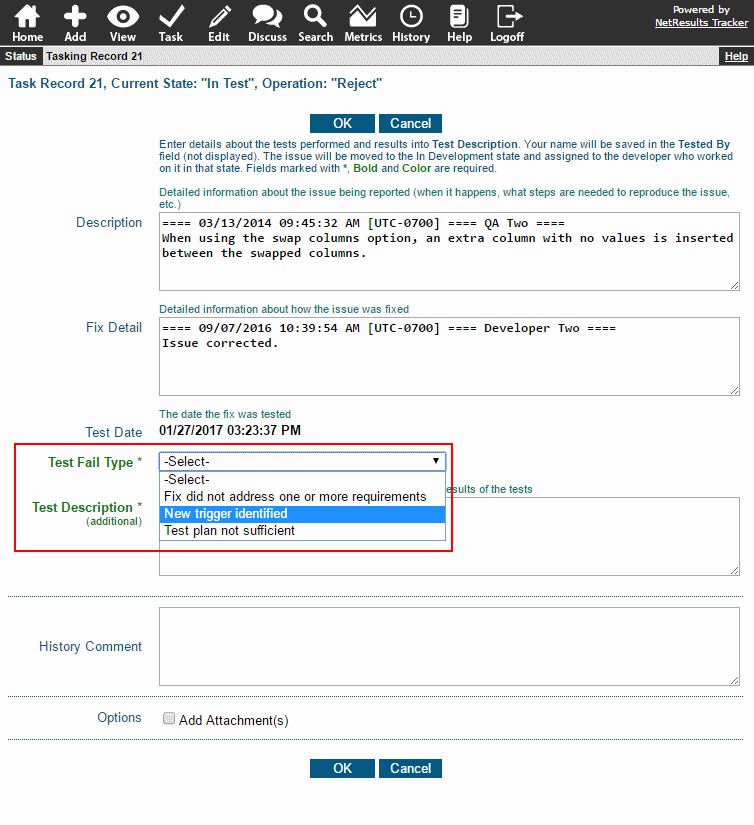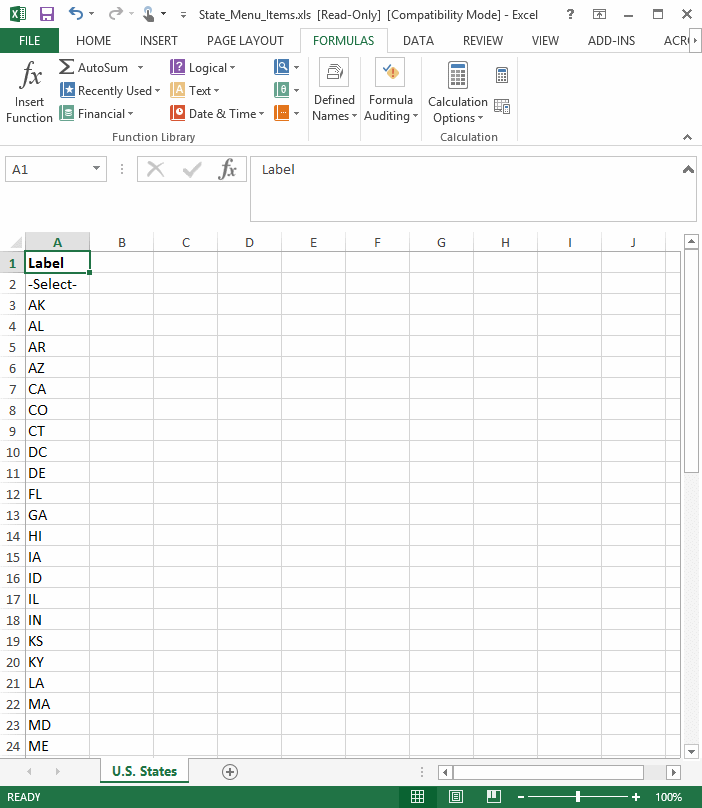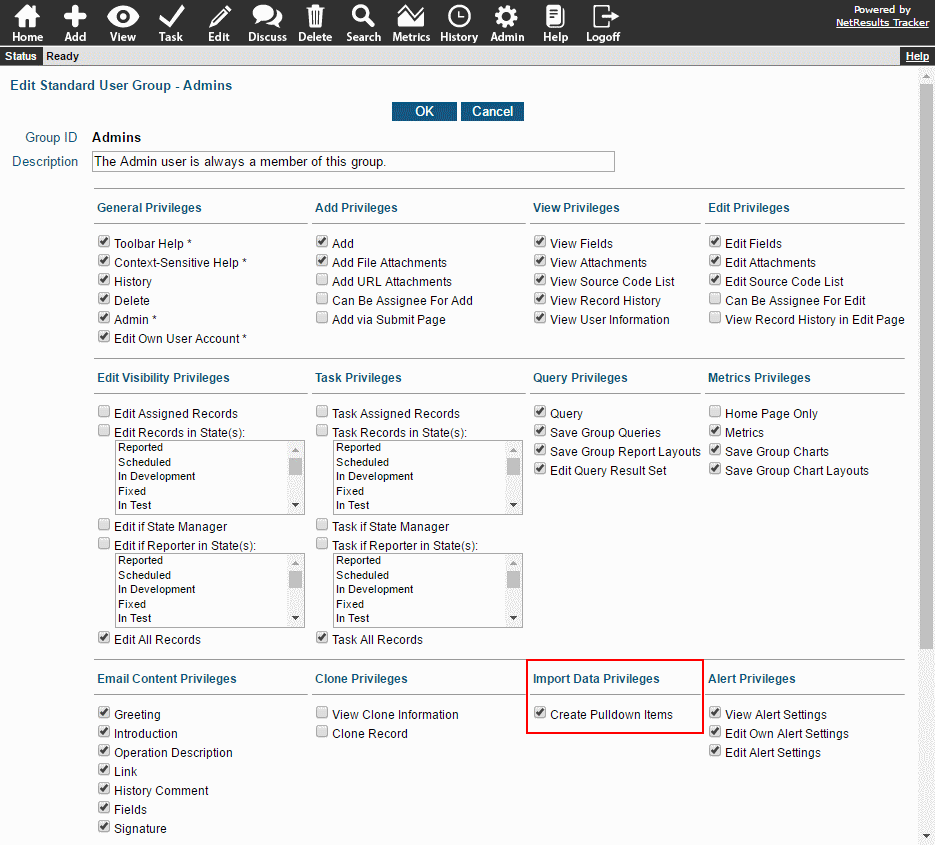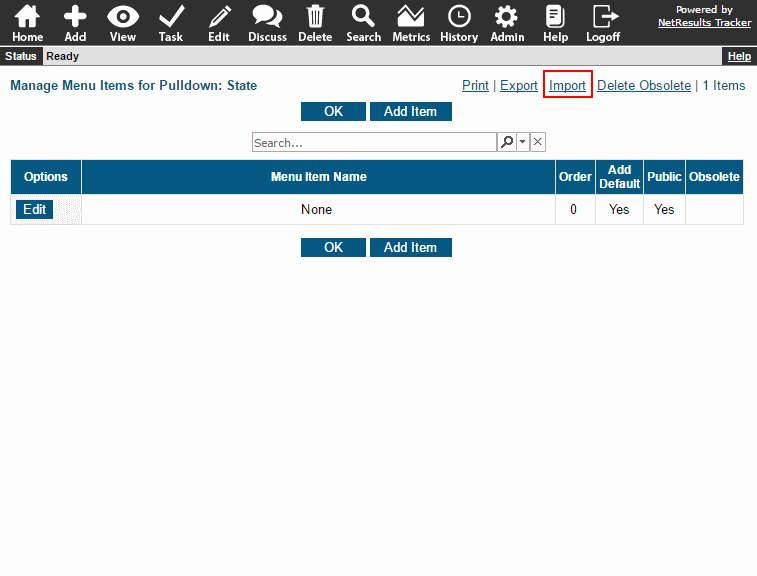Point the Help icon to your own documentation or other link to guide users on your process.
![]()
When a user clicks on the Help icon in the Button Bar, it can display a page or document that gives the user more information to assist them with how they use Tracker. For example, if you use Tracker to provide customer support, the Help link can provide more information about the information you need from them when they open a ticket.
You can configure a different link for Restricted Users (e.g. customers, vendors, other users external to your company) than the one you show to Standard Users.
To set the link:
- Login as Admin and click on the Admin icon.
- Click on the General Preferences link.
- Scroll down to the Help Options section.
- Enter the desired link for Custom Help Link for Restricted Users and/or Custom Help Link for Standard Users.
- Click OK to save the change.
This option does not apply to members of the Admins user group.
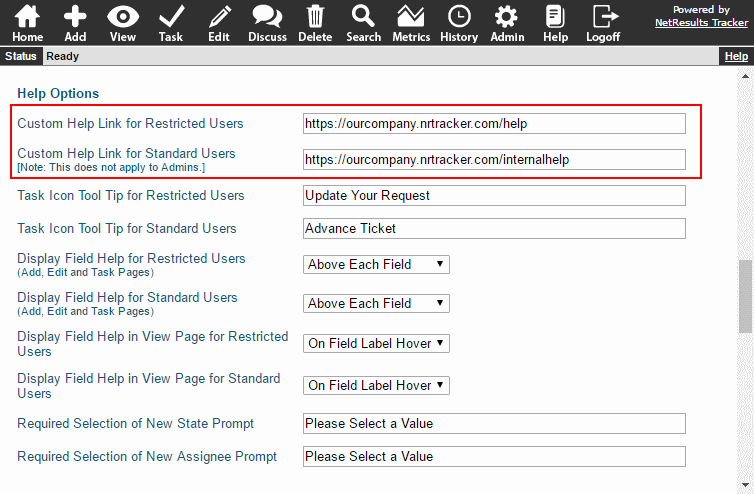
Additional Help Options are described in the Online Help Guide.

